The first part of interview by Somayeh Khomarbaghi and Mohammad Mazhari of Mehr News international service with Iraqi Ambassador to Tehran Mr. Rajih Sabir Aboudi al-Mousavi focused on regional development. In the second part, our interviewers ask Mr. ambassador about Iraqi disintegration, Iran-Iraq rivalry in oil market, Iraqi Kurdistan and other issues:
What has been Ayatollah Sistani’s role in fights against Takfirist terrorists and making the internal public forces and the army united?
If it were not for Ayatollah Sistani, Iraq would be disintegrated. I have also said, the Iranian success came only when the public followed their Leader Imam Khomeini (RA), and if they failed, no success would embrace the Revolution [of 1979]; there is a parallel of this for Iraq. Any nation who revered their religious charismatic leader, survived the hardships. As we said before, Iraq is the first in a sequence of trenches. If it falls, other trenches will definitely fall, and the region and the world as well will be engulfed by chaos. This is a significant issue, but the religious authority has played a great role in uniting public and restoring a sense of security to community.
Some analysts believe that a return to oil markets will give rise to a sort of Iran-Iraq rivalry. What sort of cooperation Iran and Iraq could engage in about unilateral cooperation or in OPEC framework?
Contrary to those analysts, I am ensured about Iran-Iraq cooperation rather than rivalry in international community. There is a full range of issues where both countries have similar positions. If any rivalry actually exists, is about restoring stability to volatile oil markets, and this is natural. A barrel of crude has gone a long way from $120 per barrel to $30 now, and this is a real threat to international financial system and to international security as well. Economy is closely related to security. Iraq’s relations with Iran would be a source of stability for global oil markets. We are also working in other oil and gas projects, worth of $10mn, which are important and have of global dimensions and consequences.
The same analysts would pose the statement that conflict and discord over oil prices will take dangerous turns. What do you think of this?
I believe that oil prices will not remain as such for long and in 2016, we will see rise in oil prices. Rivalry would damage all and this is not for the interests of all. Rivalry rises from political vested interests. Any country or party advocating the politics of discord would definitely review its approach to avoid the inevitable negative consequences. We hope to see improvement in oil prices soon. Conflict over oil prices would not benefit any side.
How Iraqi government would view Persian Gulf security order? Would it believe that this order would be realized with the US and UK present in the region?
Iraq is especially important for Persian Gulf countries, and all political equations would fall apart without Iraq. As long as Iraq fights as a proxy for these countries, no security will rule the region. The Islamic Republic of Iran has had a critical role in fighting ISIL. Our brothers in Persian Gulf should turn to dialogue with Iran, receiving with welcome Iran’s request to address the security and economic issues of the region in post-JCPOA era, otherwise the region will be stuck in a state of pandemonium and bloodshed. Great powers would not have concerns over our security and interests. This is well evidenced by the past history. The issues of the region could solely be solved by the countries in the region. This is what Iran has worked to establish as a fact in forgetting the past, especially Persian Gulf countries’ support for Saddam Hussein in the war with Iran. Great powers only seek to serve Zionist enemy.
Masoud Barzani, President of Iraqi Kurdistan Region, has recently paid visits to some countries in the region in an attempt to improve relations of Erbil with those countries. How would you interpret these visits? And would they serve Iraqi interests? How would you see the issue of Iraqi disintegration, would you consider as a serious project?
The Iraqi Constitution of 2003 posits territorial integrity and accordingly, Kurds, Arabs, Christians, Shias, Turkmen, Sunnis, and Yazidis have agreed to this important article. No party is eligible or in a position to deviate form this article. However, Barzani’s move is idiosyncratic, not reflecting the public demand by Kurds or Iraqis. Iraqi government authorities leveled critiques on the visits as well. According to Constitution, Iraq has parliament and Kurdistan has representative and minister in the parliament and the cabinet. About disintegration, no time in history did Iraq, Turkey, and Syria countenanced a Kurdish independent state in the region, and never will such a country come to existence. This is not in line with any strategic justification and rational thinking. International coalitions have favored unity and not divergence, and I believe disintegration is unlikely, however, requests for support have always been common. There are differences between Iraqi central government in Baghdad and Kurdistan region in the way issues are addressed. This issues should be negotiated and solved. Despite the discords, all are united against the common enemy which threats Iraq as a whole. The Iraqi nation rejects the idea as well; we have rejected disintegration since Sykes–Picot Agreement early 20th century. All parties and tribes in Iraq oppose disintegration and our friends help promote territorial integrity of Iraq.
Iraqi Kurdistan authorities have raised the issue of transiting gas to Turkey. What would you think of the act?
Such statements lacks seriousness. I believe our Turkish brothers would only buy gas from the Kurdistan region if the central government shows consent. This is to comply with international conventions. I believe dialogue would solve the gas issue with a delegation from Kurdistan to discuss the issue with Baghdad, and no serious concerns should be raised on this.
Interview by: Somayeh Khomarbaghi and Mohammad Mazhari


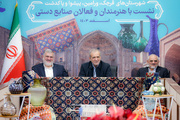
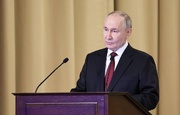
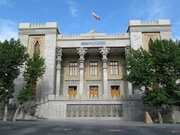

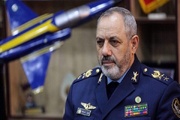
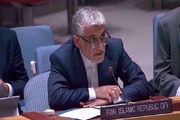
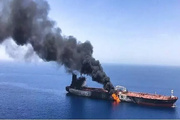
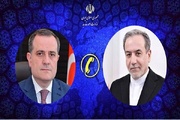
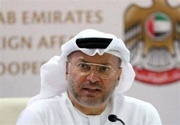
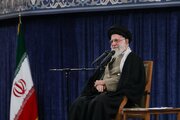
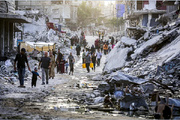

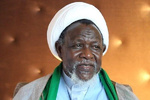
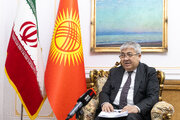
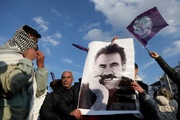
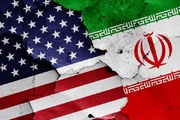
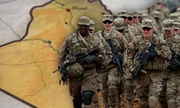
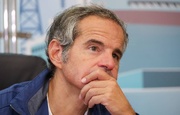
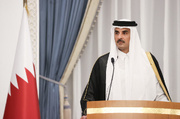
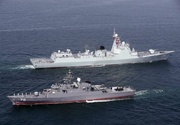
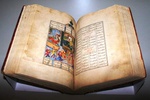

Your Comment